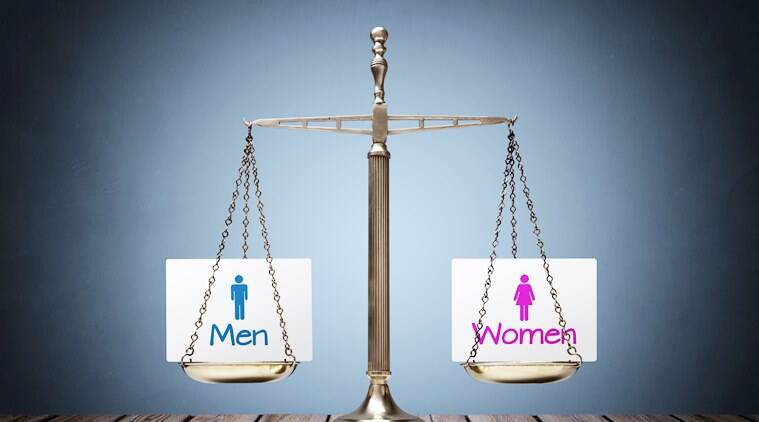Decriminalization of Adultery: Its Revolutionary Impact on Indian Society.
Table of Contents
Introduction to Adultery
Adultery is a term used to describe a voluntary sexual relationship between a married person and someone who is not their spouse. It has been a controversial and widely discussed topic for centuries, with opinions on the subject varying greatly depending on cultural, religious, and personal beliefs. Some view adultery as a morally reprehensible act that goes against the sanctity of marriage and leads to the breakdown of families and relationships, while others see it as a natural expression of human sexuality and personal choice.
The legality of Adultery also varies across different countries and regions, with some jurisdictions criminalizing the act and imposing harsh penalties, while others treat it as a civil matter or have no legal restrictions at all. The issue of adultery raises questions about personal freedom, morality, and the role of the judiciary in regulating intimate relationships.
Meaning
Section 497 of the Indian Penal Code (IPC) was the provision that defined Adultery until it was struck down by the Supreme Court of India in 2018. The section stated that a man who had sexual intercourse with the wife of another man, without the husband’s consent or connivance, was guilty of adultery, and could be punished with imprisonment for up to five years, or with a fine, or with both.
The provision also stated that the woman involved in the offense was not to be punished as an abettor but was considered to be a victim of the crime. The section applied only to men, as women were not considered capable of committing adultery under the law. The provision was widely criticized for being discriminatory, and archaic, and for violating the fundamental rights of equality and privacy enshrined in the Indian Constitution. Its decriminalization in 2018 was seen as a progressive step towards gender equality and individual freedom.
In which Case Adultery was Decriminalized?
In 2018, the Supreme Court of India declared Section 497 of the Indian Penal Code (IPC), which criminalized Adultery, as unconstitutional and struck it down.
The decision was made in the case of Joseph Shine v. Union of India, where a petitioner challenged the constitutionality of Section 497, arguing that it violated the fundamental rights of equality and liberty enshrined in the Indian Constitution. Section 497 stated that a man who had consensual sexual intercourse with another man’s wife, without the husband’s consent or connivance, was guilty of Adultery, and could face imprisonment for up to five years.
The provision did not apply to women, who were considered to be victims rather than perpetrators of the offence. The Supreme Court’s decision to decriminalize Adultery was widely applauded by civil rights activists, who saw it as a significant step towards gender equality and individual freedom. The judgement recognized that adultery was a private matter between consenting adults, and that criminalizing it was an unjustifiable intrusion into their personal lives.


Impacts of Decriminalization of Adultery in India
The decriminalization of Adultery had both positive and negative impacts on the society which are given as follows: –
Positive Impacts
The decriminalization of Adultery in India in 2018 has had several positive impacts on the society, including:
- Strengthening Gender Equality: The decriminalization of Sec 497 has helped to strengthen the position of women in society by removing the gender discrimination that was inherent in the law. Earlier, women were considered as victims and not as perpetrators, which reinforced the notion of women as passive objects of male desire. The decriminalization has helped to establish a more equitable framework for intimate relationships and promotes gender equality.
- Upholding Individual Freedom: The decriminalization of Sec 497 has recognized the right of individuals to make choices about their personal lives without interference from the state. It has helped to uphold the fundamental right to privacy and liberty enshrined in the Indian Constitution.
- Promoting Healthy Relationships: The decriminalization of Sec 497 has recognized that relationships are complex and multifaceted and cannot be regulated by the state. By removing the fear of criminal sanctions, the decision has helped to promote healthier relationships based on mutual respect and trust.
- Reducing Pressure on the Legal System: The criminalization of Sec 497 led to a significant burden on the legal system, with many cases being filed in courts. The decriminalization has helped to reduce the pressure on the legal system, enabling it to focus on more pressing matters.
- Encouraging Progressive Thinking: The decriminalization of Sec 497 has encouraged progressive thinking and has helped to promote a more liberal and inclusive society. It has helped to move away from archaic and discriminatory laws and towards a more modern and enlightened legal framework.


Negative Impacts
While the decriminalization of Sec 497 in India in 2018 has been widely hailed as a progressive step towards gender equality and individual freedom, there have been concerns raised about its potential negative impacts on society. Some of the negative impacts that have been highlighted include:
- Weakening of Marital Ties: Some critics of the decriminalization argue that it could lead to a weakening of marital ties and encourage infidelity, ultimately leading to the breakdown of families and social instability. They contend that the fear of criminal sanctions acted as a deterrent against adultery, and that its decriminalization could lead to an increase in extramarital affairs.
- Encouraging Moral Decay: Some sections of society view adultery as a morally reprehensible act that goes against the sanctity of marriage and leads to moral decay. They argue that the decriminalization of Sec 497 sends a wrong message to society and promotes a culture of promiscuity and loose morals.
- Adverse Impact on Women: While the decriminalization of Sec 497 has been hailed as a victory for gender equality, some critics argue that it could have adverse impacts on women, who are often at a disadvantage in intimate relationships. They contend that the decriminalization could lead to a rise in cases of domestic violence and exploitation of women by unscrupulous men.
- Impact on Children: The decriminalization of Sec 497 could have an impact on children of affected families. Children could be adversely impacted by the breakdown of their parents’ marriage or by being subjected to the trauma of witnessing the fallout of an extramarital affair.
It is important to note that these concerns are based on speculation, and that the long-term impact of the decriminalization of Sec 497 on Indian society is yet to be fully understood.
Conclusion
In conclusion, the decriminalization of Sec 497 in India in 2018 was a landmark decision that brought about significant changes in the legal and social landscape of the country. The decision was widely hailed as a progressive step towards gender equality and individual freedom and was seen as a move away from archaic and discriminatory laws.
The decriminalization recognized the autonomy of individuals in their personal lives, and promoted the idea of healthy relationships based on mutual respect and trust. It also helped to reduce the burden on the legal system, which was overburdened with cases related to adultery.
However, there were also concerns raised about the potential negative impacts of the decision, such as the weakening of marital ties, the promotion of moral decay, and adverse impacts on women and children.
Overall, it is important to continue to monitor the impact of the decriminalization of Sec 497 on Indian society, and to ensure that it promotes gender equality and individual freedom while also upholding the sanctity of marriage and family values. The decision represents a significant step towards a more liberal and inclusive society, and underscores the importance of progressive thinking and an open-minded approach to social issues.
What do you think about the decriminalization of Adultery? Do partake your views in the comments section below. In order to have more information on the legal topics you can take help of the other legal websites, like Legal Service India, Law Bhoomi, iPleaders, etc., too.
FAQs
How does the decriminalization of adultery impact marital relationships?
The impact of decriminalizing adultery on marital relationships can vary based on individual circumstances and societal factors. While decriminalization removes the legal consequences associated with adultery, it does not necessarily change the moral or emotional implications within a marriage. It may, however, encourage a shift towards more open discussions about relationships, trust, and fidelity, prompting couples to address these matters openly and potentially seek counseling or mediation when facing challenges.
Are there any exceptions or conditions to the decriminalization of adultery?
The exceptions or conditions to the decriminalization of adultery can vary based on the legal framework of each jurisdiction. In some cases, specific circumstances such as adultery involving coercion, abuse, or fraud may still be subject to legal consequences. Additionally, civil laws relating to divorce, property division, or child custody may consider adultery as a relevant factor in certain cases. It is important to consult the specific laws and regulations of the jurisdiction in question to understand any exceptions or conditions related to the decriminalization of adultery.
How does the decriminalization of adultery impact divorce and family law proceedings?
The decriminalization of adultery can have an impact on divorce and family law proceedings. In jurisdictions where adultery was previously a ground for divorce, its decriminalization may shift the focus towards no-fault divorce or other grounds for dissolution of marriage. While adultery may not carry criminal consequences, it can still be considered a factor in divorce proceedings, potentially influencing matters such as division of property, spousal support, or child custody, depending on the jurisdiction’s laws and the specific circumstances of the case. It is important to consult local laws and seek legal advice for a comprehensive understanding of the impact of decriminalization on divorce and family law.

